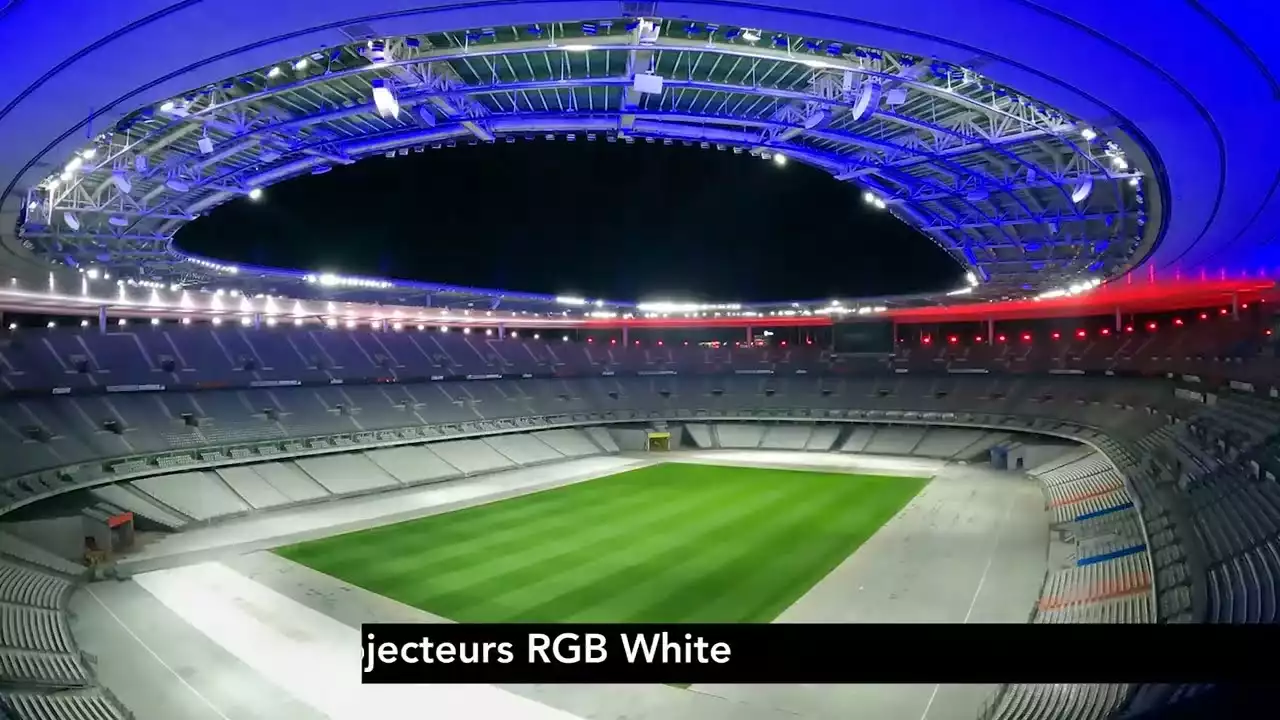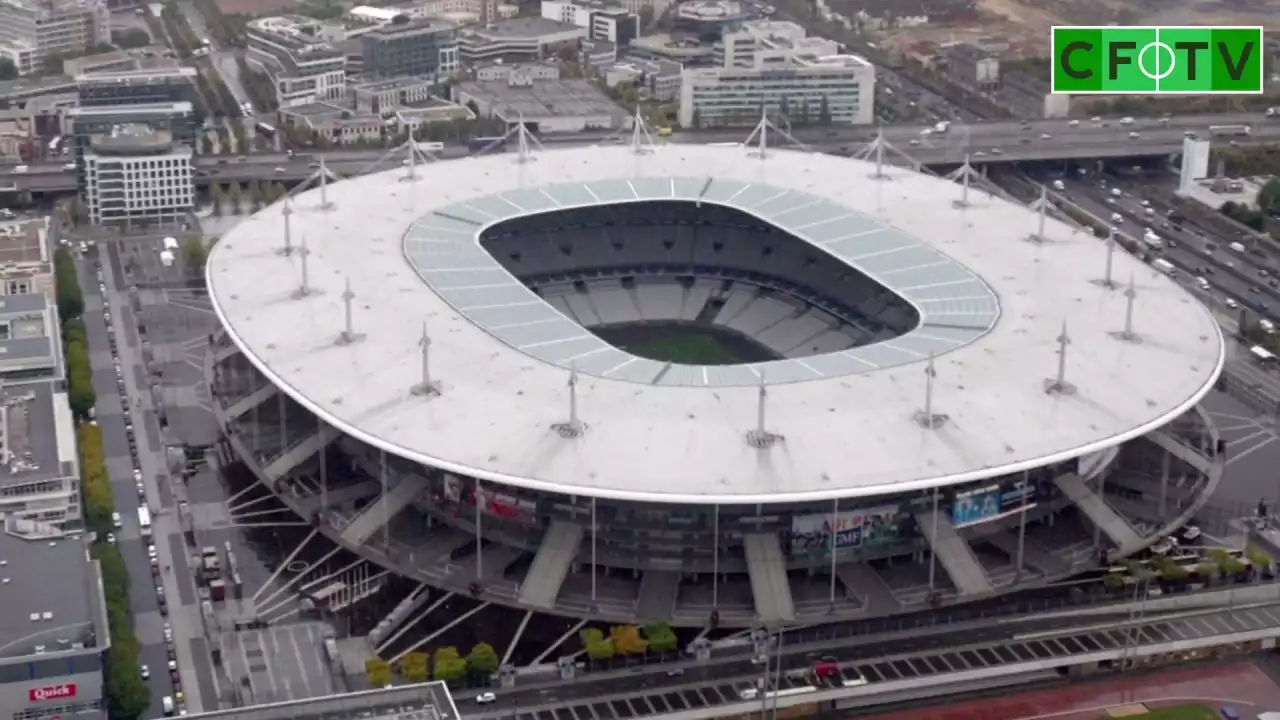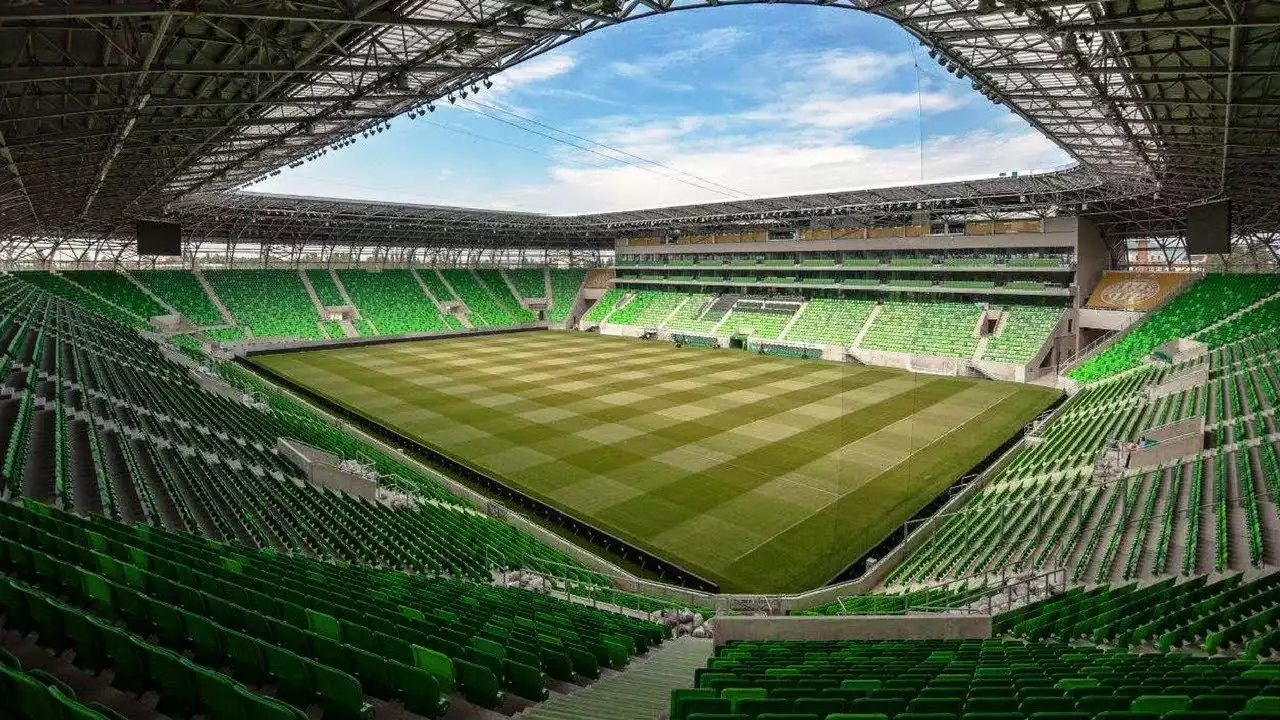Importance of hosting the finals in large stadiums
Hosting the UEFA Women's Championship Finals in large stadiums holds immense significance for the growth and visibility of women's football. The decision to select these massive arenas reflects the increasing support and recognition that the sport is receiving on a global scale.
Large stadiums provide the perfect platform to showcase the talent, dedication, and skill of these remarkable athletes. The sheer size of these venues allows for greater attendance, ensuring that more fans can witness the thrilling action firsthand. This not only boosts the atmosphere but also creates a sense of excitement that reverberates throughout the stadium.
Moreover, hosting the finals in large stadiums sends a powerful message about the value and importance of women's football. It demonstrates that the sport is being taken seriously, and that women athletes deserve the same level of recognition and investment as their male counterparts. By providing these athletes with world-class facilities and an opportunity to compete on a grand stage, it paves the way for a more inclusive future in the world of football.
Estadio Wanda Metropolitano - Madrid, Spain
One of the biggest stadiums chosen to host the UEFA Women's Championship Finals is the Estadio Wanda Metropolitano in Madrid, Spain. This magnificent venue, with a seating capacity of over 67,000, is the home of Atletico Madrid and has witnessed some of the most memorable moments in football history.
The history of the Estadio Wanda Metropolitano dates back to its inauguration in 1994, when it was known as the Estadio de la Comunidad de Madrid. It was later renamed after the renowned club's change of ownership. The stadium has since undergone several renovations and expansions, transforming it into a state-of-the-art facility that is befitting of hosting such prestigious events.
What sets the Estadio Wanda Metropolitano apart is its modern design and world-class amenities. The stadium features a retractable roof, allowing matches to be played in all weather conditions. The seating arrangement ensures that every seat offers an unobstructed view of the pitch, providing a truly immersive experience for spectators. Additionally, the stadium boasts excellent transport links, making it easily accessible for fans from all over the world.
Wembley Stadium - London, England
Wembley Stadium, located in London, England, is undoubtedly one of the most iconic stadiums in the world. Steeped in history and tradition, this colossal venue has a seating capacity of over 90,000, making it the largest stadium in the United Kingdom.
The history of Wembley Stadium dates back to its original construction in 1923, which was then known as the Empire Stadium. Since then, it has undergone multiple renovations and reconstructions, with the most recent being completed in 2007. The stadium is synonymous with memorable football matches, including the 1966 FIFA World Cup Final and numerous FA Cup Finals.
What makes Wembley Stadium truly special is its legendary status and its ability to create an electric atmosphere. The sheer size of the stadium, combined with its iconic arch, creates a sense of grandeur that is unmatched. The stadium also offers state-of-the-art facilities for players and spectators, ensuring a seamless and unforgettable experience.
Stade de France - Saint-Denis, France
Located in the vibrant city of Saint-Denis, just outside Paris, the Stade de France is another colossal stadium selected to host the UEFA Women's Championship Finals. With a capacity of over 80,000, this stadium has played a significant role in French football history and has witnessed some of the most memorable moments in the sport.
The construction of the Stade de France was completed in 1998, just in time for the FIFA World Cup. Since then, it has become the national stadium of France and has hosted numerous international matches and major sporting events. The stadium's architecture is a masterpiece, combining modern design with a nod to French heritage.
One of the standout features of the Stade de France is its remarkable atmosphere. The passionate French fans, known for their unwavering support, create an electrifying environment that adds to the excitement of the matches. The stadium also boasts excellent facilities, ensuring that both players and spectators have a comfortable and enjoyable experience.
Allianz Stadium - Turin, Italy
In the picturesque city of Turin, Italy, lies the Allianz Stadium, which has been selected as one of the venues for the UEFA Women's Championship Finals. With a seating capacity of over 41,000, this stadium is the home of Juventus Football Club and is renowned for its modern facilities and architectural beauty.
The Allianz Stadium, formerly known as the Juventus Stadium, was completed in 2011 and has since become an iconic landmark in Turin. The stadium's design focuses on creating an intimate atmosphere, with the stands positioned close to the pitch, allowing fans to feel fully immersed in the action.
One of the unique features of the Allianz Stadium is its innovative lighting system. The stadium can be illuminated in various colors, creating a visually stunning experience for spectators. This feature adds an extra layer of excitement and spectacle to the matches, making them truly unforgettable.
Olympiastadion - Berlin, Germany
The Olympiastadion in Berlin, Germany, is a historic venue that has stood witness to numerous iconic sporting events. With a seating capacity of over 74,000, this stadium has been chosen as one of the hosts for the UEFA Women's Championship Finals, providing a grand stage for these exceptional athletes.
The construction of the Olympiastadion was completed in 1936, in preparation for the Summer Olympics. The stadium's architecture reflects the grandeur of that era, with its imposing columns and sweeping curves. Since then, it has undergone several renovations to modernize its facilities and ensure a world-class experience for spectators.
What makes the Olympiastadion truly special is its rich history and the sense of occasion it brings to any event held within its walls. The stadium has hosted numerous international football matches and has witnessed some of the sport's most iconic moments. The combination of its grand architecture and the passionate German fans creates an atmosphere that is unmatched.
Signal Iduna Park - Dortmund, Germany
Signal Iduna Park, located in Dortmund, Germany, is another colossal stadium that will host the UEFA Women's Championship Finals. With a seating capacity of over 81,000, it is the largest stadium in Germany and one of the most iconic football arenas in Europe.
The history of Signal Iduna Park dates back to its original construction in 1974, when it was known as the Westfalenstadion. Over the years, the stadium has undergone several expansions and renovations, transforming it into a world-class facility. The stadium is the home of Borussia Dortmund, a club known for its passionate fans and electrifying atmosphere.
What sets Signal Iduna Park apart is the famous "Yellow Wall." This section of the stadium, known as the Sudtribune, is the largest standing terrace in Europe, accommodating over 25,000 fans. The sea of yellow and black creates a visual spectacle that is unmatched in the world of football. The stadium's facilities are also top-notch, ensuring that spectators have an unforgettable experience.
The impact of hosting the finals in these stadiums
The selection of these six colossal stadiums to host the UEFA Women's Championship Finals has a profound impact on the growth and recognition of women's football. By providing these athletes with world-class facilities and a grand stage to showcase their skills, these stadiums emphasize the importance of gender equality in the sporting world.
These stadiums not only provide an immersive experience for spectators but also create a sense of pride and achievement for the athletes. The electrifying atmosphere, passionate fans, and state-of-the-art facilities contribute to a memorable event that will be etched in the history of women's football.
As the UEFA Women's Championship Finals continue to gain momentum, hosting the finals in these stadiums serves as a powerful statement of support and recognition for women's football. It paves the way for future generations of female athletes, inspiring them to dream big and pursue their passion for the sport.






.png?size=50)



